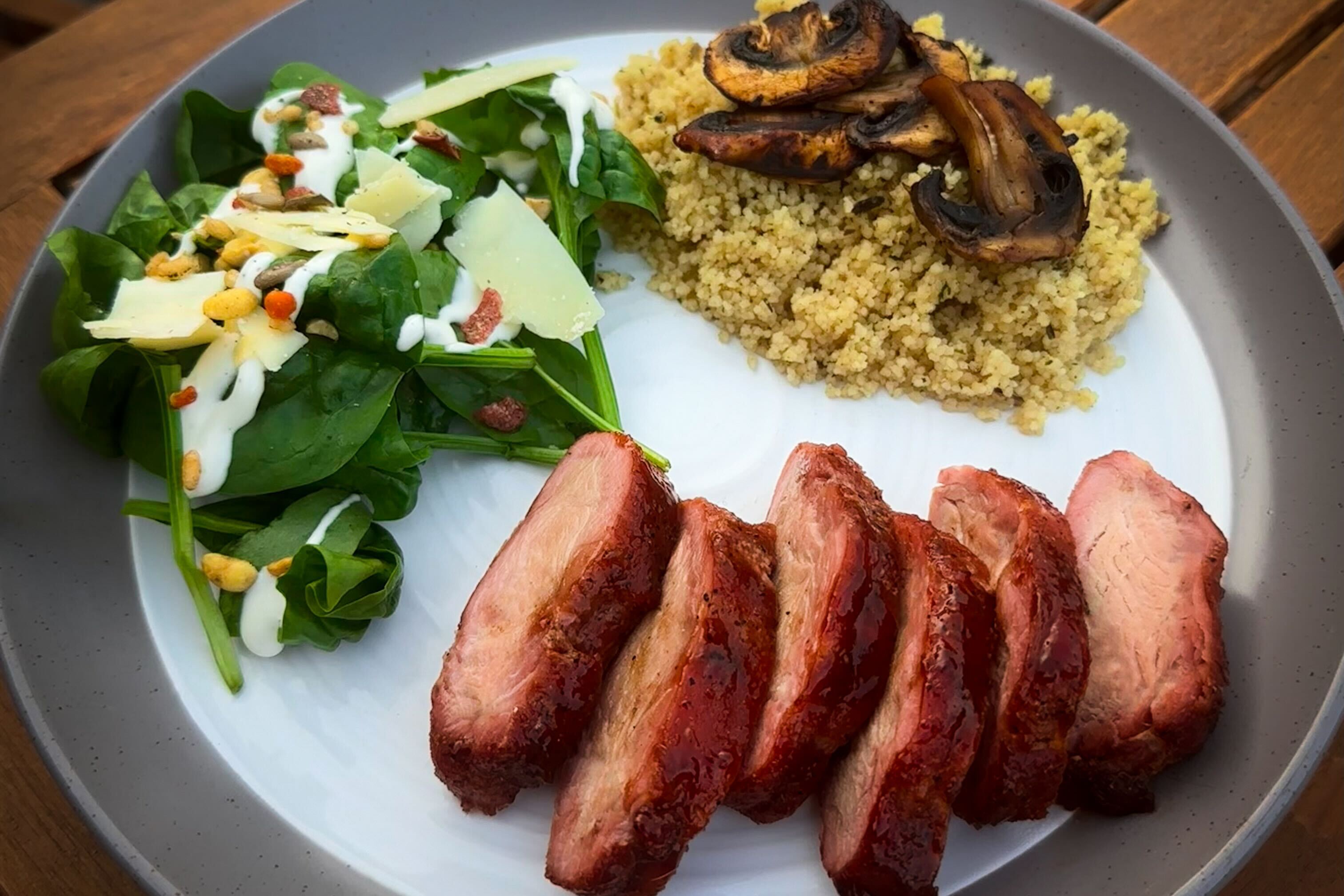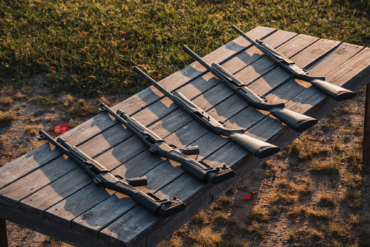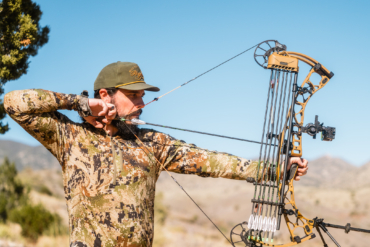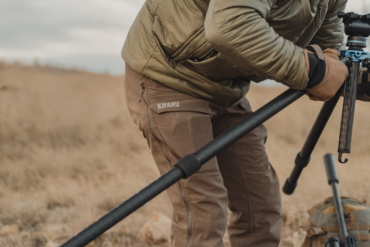If you are not a hunter, I’m writing to you. And I do it with the utmost respect. Not everyone can, wants to, or should hunt. And that’s totally fine.
While the realities of life and death are impossible to ignore, even many nonhunters subsist on a system that requires the taking of life. Just because you may not see it take place does not mean your food was derived kindly or ethically. Still, choosing not to hunt or taking a moral stance against consuming meat can be respectable and coexist with those who do choose to hunt and eat what they take.
Where this potential to coexist ends, though, is when either side dictates what someone can and can’t eat. It is also crucial to heed decades of effective science and wildlife management. Above all, it is imperative we all speak truth when making choices that can — and will — have massive impacts on others’ way of life.
If you are a hunter, you probably already know about the proposed hunting ban in Colorado, though you may be missing a huge component of the conversation: food.
For those unfamiliar, let me fill you in from the beginning.
Colorado Hunting Ban: How We Got Here
The state of Colorado has a law that allows any citizen to place a measure on the ballot if they collect enough signatures. Want to outlaw walking while chewing gum? In theory, you could put it to a vote if you get enough signatures. And if you sway voters that walking and chewing gum shouldn’t be legal, boom, it’s not.
For those keeping track, that’s also how the state ended up with a pack of wolves. Proposition 114, now state statute 33-2-105.8, passed on Nov. 3, 2020, by less than 2%. It was strongly opposed by those who live in the area where wolves were introduced, and polarized many rural against urban voters. Many of the counties in which the wolves were introduced opposed the proposition by more than 80%.
Ten wolves were introduced to the state in 2023 as part of the plan.
In a similar vein, this spring, a group of animal rights activists launched a campaign to collect signatures to put a specific hunting ban on the ballot. This ban would prohibit the hunting of mountain lions, lynx, and bobcats in the state. (Side note: Lynx are already protected by both state and federal law, with hunting and trapping prohibited.)
This is their right. But where I take issue is with the methods this group used. Their messaging was loaded with propaganda falsehoods. The group’s language lies, and will eventually build a playbook that attacks all hunters.
Here’s how.
‘Trophy’ Hunting Is Ill-Defined, Already Illegal
The organization attacking hunters is called Cats Aren’t Trophies (or, “CAT”). It cooks this deceptive name right into the title of its organization.
Trophy.
While the term incites emotions in both hunters and non-hunters alike, its use here is purely manipulative. That’s because, in the case of mountain lions, the organization is insinuating that trophy hunting is currently legal. That’s simply not true. It’s already illegal.
As noted in the Colorado mountain lion hunting regulations below, verbatim, to do so is a felony.
FELONY OFFENSES:
If convicted of a felony violation, you can face a lifetime license suspension:
▶ To kill and abandon big game. It is illegal to remove only the hide, antlers, or
other trophy parts and leave the carcass in the field.
I’ll say it again: If you define trophy hunting as killing an animal for its “trophy parts,” it is both illegal and unethical.
What About Trophy Elk, Deer, Pronghorn, Sheep, and More?
Here is why this bill is so nefarious. I hunt and eat elk and deer. Even many nonhunters enjoy the meat. Elk and deer live a wild, natural life. They are never penned or farmed — and there isn’t a feedlot in sight. And venison is packed with nutrients.

On a successful hunt, I will kill an elk or deer to bring home to my family and freezer. It will feed us for a full year. I almost never buy farmed meat and have a strong distaste for feedlots and penned pigs.
From an ethical standpoint, I am much more comfortable knowing the animals I kill lived natural lives and were harvested as quickly and humanely as possible. I don’t like killing. But I love the food and have a deep, if not paradoxical, respect for the wild animals I hunt.
Most hunters I know feel the same way.
But if a massive, trophy-level bull elk with soaring antlers came my way, I would honestly get excited. It’s a genuine challenge to kill a mature bull or buck. And, to me, it’s an amazing memento and memory to keep its antlers on my wall.
But make no mistake: Those antlers weren’t the purpose. I hunt to feed myself and my family, and I do so as ethically as I know how.
The same principles hold true for mountain lions.
“Mountain lions are my favorite meat,” said Rachelle Schrute, GearJunkie’s hunting and fishing editor. “I actually ration my cat meat for special occasions and when we have family gatherings because it is that good. I’d say any mountain lion hunter who enjoys the meat will tell you the same. This isn’t an instance of, ‘Well, it’s edible if …’ This is an instance of, ‘It’s one of the best wild game meats on the planet, and it plays a big role in managing the population and protecting other species.'”
I admire Schrute’s ethics as a hunter. I know how much work she and her family put into each season and how much the food she harvests means to her livelihood. She has introduced many new people — even serious skeptics of hunting — to the endeavor.
Moreover, I respect her as a person who does not lie about things like “what I ate for dinner.”
And this is where I start to get angry.
The Deliberate Choice of Wild Game Meat

There’s been so much chatter about the conservation aspect and right-to-hunt issues of a ballot box vote plausibly changing a wildlife management method that we may be ignoring those who understand that we can both manage the population and have one of the healthiest, most delicious meats available.
To be clear, I don’t hunt mountain lions. I’ve never had much desire. But I would never tell someone else what they should and should not eat, so long as it’s not putting a species at risk. In this case, mountain lions in Colorado are plentiful and have a very healthy population.
Some in the anti-hunting camp (CAT, for example) will tell you what to do, or how you should feel about your food choices.
After receiving a press release from this group, I replied, asking some pointed questions.
I noted that I know mountain lion hunters who eat the meat they harvest. CAT replied:
“Anyone who says they recreationally hunt mountain lions or bobcats to fill their freezer and feed a family is being disingenuous.”
“When someone says they’re eating cats, they are attempting to justify a behavior the public finds unacceptable.“
Via a swift and sterile email, this group has told me the people I know personally and respect immensely are lying to me.
They’re saying someone else’s choice of what to feed their family is “unacceptable.” Even if that choice is based on morals, ethics, and health.
This is gaslighting in its purest form. And who’s next? My guess would be other big game hunters.
Respect to the Vegans
If you happen to be a vegan reading this, I want to say I respect you and your choice. And if you are staunchly opposed to people eating meat, well, I disagree. But, I still respect you and your adherence to your way of life.
That said, less than 1% of Americans identify as vegan. And the rest of you either eat meat or are complicit in its production through the dairy, leather, cosmetics, and other industries.
To oppose hunting as a meat eater is hypocritical.
I, for one, much prefer the wild game I harvest to farm-raised fare. But I would never tell you not to buy your bacon or cheeseburger, even though the lives of many of those farmed animals are arguably much worse, and their deaths much more traumatic than mountain lions harvested by hunters.
Science Informs Hunting Laws
The North American model of wildlife management is a pillar of conservation, respected worldwide for bringing now-flourishing populations of wildlife back from the brink of extinction. Founded by hunters and anglers beginning in the 1860s on a set of principles meant to preserve wildlife and wild places, the model is recognized as a beacon of conservation.
While not without critics, the core principle of science as a proper tool for the discharge of wildlife policy has meant healthy, well-managed game populations across North America for decades.
Those intimate with game management laws — like hunters — can attest to the changing landscape of game populations. For example, Colorado game managers dramatically limited the number of licenses for elk and deer hunting after a severe winter in 2021, which resulted in many animals and calves dying that spring.
I, and many other hunters, did not get our tags that year. And hunters overwhelmingly supported the measure, which was long-sighted and should result in healthy populations returning in the coming years.
Currently, this science informs mountain lion hunting. It ensures that hunters do not kill more lions than the population can support.
Mountain lion populations are healthy in Colorado and neighboring states. Current regulations are working.
Why disrupt this balance?
We Need All Ethical Hunters and Nonhunters Alike
If you’ve read this far, I hope it’s clear why I’m upset by this initiative. I am not a mountain lion hunter. But I support others who head to the mountains and fields in pursuit of wild game in accordance with laws and scientific game management.
And I fear the day this group, or another inspired by it, will come for me and all the other hunters out there.
Who else will support support the wildlife refuges and conservation efforts to the tune of $371 million a year through the Pittman-Robertson Wildlife Restoration Act, an 11% tax on guns, ammo, bows, and arrows started by hunters? Who else will generate nearly $1 billion each year through licenses and fees, most of which go to conservation and public lands management?
Should it be backpackers or mountain bikers? I don’t think so. Hunters shoulder this burden, largely alone. And the rest of us reap the rewards.
This fall, as my foot falls silently on a dewy pre-dawn forest floor, I’ll be carrying on the traditions of my kin for generations. If my arrow flies true or my bullet meets its mark, I’ll quickly kneel, in awe of the life I’ve taken. Then I’ll get to work, removing fur and hide to cool the life-giving sustenance of muscle, organ, and fat. It will make its way to my parents’ garage, where we’ll make sausages and burgers, steaks and roasts.
And I know today that someone wants to take this away from me. They want to force me into the grocery store.
I hope you understand why this is not OK, even if you aren’t a hunter. If you live in Colorado, please support hunters this fall by voting NO on the CO Prohibition Measure. We and our wild places will need your help.








